God loves America. When you consider what He went through to bring our forbearers to this magnificent land, and when you realize what He accomplished in bringing forth a new nation on this continent – a government founded on Christian principles…you have to realize that He had a dramatic vision and purpose for this nation.
No one expects this nation to become a theocracy, where Christianity is the only value, but we do indeed say that the essential values and founding principles of the nation should not be ignored.
—D. James Kennedy—
Key point: America’s Founders didn’t just establish liberty in the nation they founded; they also revealed how they did it. They exercised faith in God, demonstrated an unshakable resolve, and held firmly to the bedrock truths reflected in “the Laws of Nature and of Nature’s God.” We face the same choice our Founders did. We either will slide into tyranny or reestablish a revolutionary freedom. To accomplish the latter, we must learn from the Founders and imitate them.
Note: You are invited to explore ten biblical tenets hidden in the Declaration of Independence. Your “map” for the journey is available here, at Principles of Liberty: Ten Biblical Truths Embedded in the Declaration of Independence, a 5-session Bible study. The series is designed for group study, but individuals can use the material on their own and still benefit greatly. Thanks for checking it out.
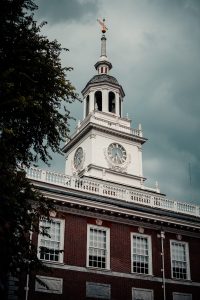
Talk among the American Colonists about the possibility and even the need to break ties with England had been occurring for some time, but not all the Colonists agreed that ties with the mother country should be severed, or that the time for a formal departure actually had arrived. It was against this backdrop that Richard Henry Lee of Virginia offered a clear and decisive resolution on Friday, June 7, 1776, during the Second Continental Congress. The motion readily was seconded by John Adams. It contained three clauses:
-
-
- Resolved, That these United Colonies are, and of right ought to be, free and independent States, that they are absolved from all allegiance to the British Crown, and that all political connection between them and the State of Great Britain is, and ought to be, totally dissolved.
- That it is expedient forthwith to take the most effectual measures for forming foreign Alliances.
- That a plan of confederation be prepared and transmitted to the respective Colonies for their consideration and approbation.
-
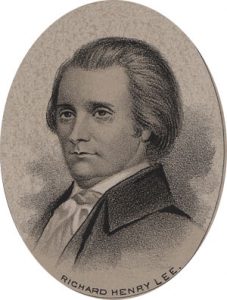 The Congress decided to delay voting on the resolution, but they also appointed a “Committee of Five” to draft a declaration announcing the formal separation of the colonies from the mother country. The delegates to the Second Continental Congress passed Richard Henry Lee’s resolution of independence on Tuesday, July 2, 1776. Then, with a draft of the Declaration of Independence already before them — one that had been edited to some extent already — they fine-tuned the document further. This process ended on July 4, and the Declaration was adopted. The signing, however, would not take place until Friday, August 2, 1776. It was a momentous occasion, yet also a somber one. Everyone present was aware that he was risking everything the sake of independence. If the new nation lost the war, the British would, without question, hunt down and execute the men who were affixing their names to the document that day. Even so, as the Declaration states, they took their bold stand “with a firm reliance on the protection of Divine Providence.”
The Congress decided to delay voting on the resolution, but they also appointed a “Committee of Five” to draft a declaration announcing the formal separation of the colonies from the mother country. The delegates to the Second Continental Congress passed Richard Henry Lee’s resolution of independence on Tuesday, July 2, 1776. Then, with a draft of the Declaration of Independence already before them — one that had been edited to some extent already — they fine-tuned the document further. This process ended on July 4, and the Declaration was adopted. The signing, however, would not take place until Friday, August 2, 1776. It was a momentous occasion, yet also a somber one. Everyone present was aware that he was risking everything the sake of independence. If the new nation lost the war, the British would, without question, hunt down and execute the men who were affixing their names to the document that day. Even so, as the Declaration states, they took their bold stand “with a firm reliance on the protection of Divine Providence.”
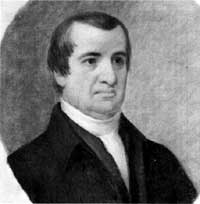
They meant this wholeheartedly. On July 14, 1776, Abraham Clark of New Jersey wrote to Elias Dayton, a friend of his who was a military leader in the American Revolutionary War,
Our Declaration of Independence I dare say you have seen. A few weeks will probably determine our fate. Perfect freedom, or Absolute Slavery. To some of us freedom or a halter. Our fates are in the hands of An Almighty God, to whom I can with pleasure confide my own; he can save us, or destroy us; his Councils are fixed and cannot be disappointed, and all his designs will be Accomplished.
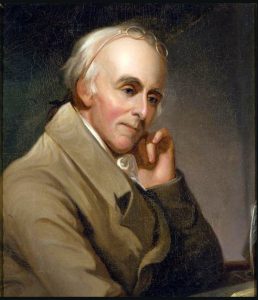
In a letter to John Adams written 35 years later, Dr. Benjamin Rush, a delegate and signer from Pennsylvania, recalled the signing of the Declaration. He wrote to Mr. Adams,
The 4th of July has been celebrated in Philada: in the manner I expected. The military men, and particularly one of them, ran away with all the glory of the day. Scarcely a word was said of the solicitude and labors, and fears, and sorrows and sleepless nights of the men who projected, proposed, defended, and Subscribed the declaration of independance. Do you recollect your memorable speech upon the Day on which the Vote was taken? Do you recollect the pensive and awful silence which pervaded the house when we were called up, one after another, to the table of the President of Congress, to subscribe what was believed by many at that time to be our own death warrants? The Silence & the gloom of the morning were interrupted I well recollect only for a moment by Col: Harrison of Virginia who said to Mr Gerry at the table, “I shall have a great advantage over you Mr: Gerry when we are all hung for what we are now doing. From the size and weight of my body I shall die in a few minutes, but from the lightness of your body you will dance in the air an hour or two before you are dead.” This Speech procured a transient smile, but it was soon succeeded by the Solemnity with which the whole business was conducted.
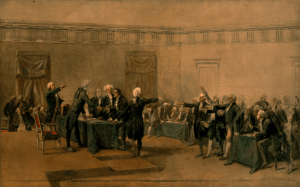
A bit later in this article, we’ll hear from Dr. Benjamin Rush once more. My purpose with this post is to explore some of the insights the signers of the Declaration of Independence — men who risked everything for the cause of liberty — have left to the members of American generations who would follow them. All Americans, including you and me, are the beneficiaries of their sacrifice. Let us heed the insights we’re citing in this post and become beneficiaries of that wisdom as well.
John Adams of Massachusetts
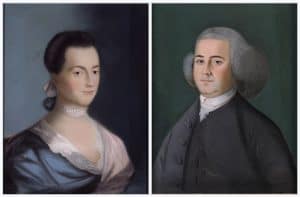
In a letter to his wife Abigail dated April 26, 1777, John Adams, who later would become the second president of the United States, declared,
Posterity! You will never know, how much it cost the present Generation, to preserve your Freedom! I hope you will make a good Use of it. If you do not, I shall repent in Heaven, that I ever took half the Pains to preserve it.
Posterity! You will never know, how much it cost the present Generation, to preserve your Freedom! I hope you will make a good Use of it. If you do not, I shall repent in Heaven, that I ever took half the Pains to preserve it.
—John Adams—
Samuel Adams of Massachusetts
In 1772 the second cousin of John Adams wrote (note especially the portion in bold type [emphasis added]),
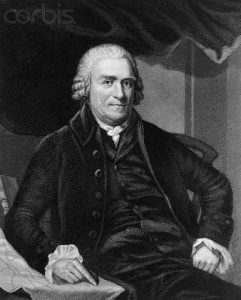
Is it not High Time for the People of this Country explicitly to declare, whether they will be Freemen or Slaves? It is an important Question which ought to be decided. It concerns us more than any Thing in this Life. The Salvation of our Souls is interested in the Event: For wherever Tyranny is established, Immorality of every Kind comes in like a Torrent. It is in the Interest of Tyrants to reduce the People to Ignorance and Vice. For they cannot live in any Country where Virtue and Knowledge prevail. The Religion and public Liberty of a People are intimately connected; their Interests are interwoven, they cannot subsist separately; and therefore they rise and fall together. For this Reason, it is always observable, that those who are combined to destroy the People’s Liberties, practice every Art to poison their Morals. How greatly then does it concern us, at all Events, to put a Stop to the Progress of Tyranny. It is advanced already by far too many Strides. We are at this moment upon a precipice. The next step may be fatal to us. Let us then act like wise Men; calmly look around us and consider what is best to be done.
This quote also has been attributed to Samuel Adams: “It does not take a majority to prevail… but rather an irate, tireless minority, keen on setting brushfires of freedom in the minds of men.”
Josiah Bartlett of New Hampshire
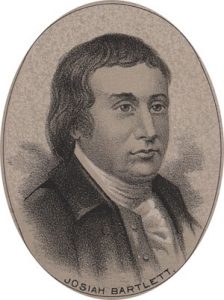 Josiah Bartlett became the fourth chief executive of the state of New Hampshire and led the state from June 5, 1790-June 5, 1794. During his tenure, he superintended legislation that authorized state recognition of the New Hampshire Medical Society. He also administered the implementation of a new constitution for his state, and when it took effect in 1792, he assumed the title of governor. Previously, the chief executive had been called the president.
Josiah Bartlett became the fourth chief executive of the state of New Hampshire and led the state from June 5, 1790-June 5, 1794. During his tenure, he superintended legislation that authorized state recognition of the New Hampshire Medical Society. He also administered the implementation of a new constitution for his state, and when it took effect in 1792, he assumed the title of governor. Previously, the chief executive had been called the president.
In a Proclamation for a Day of Fasting and Prayer issued on October 5, 1793, Governor Bartlett urged the residents “throughout” his state to set aside “Thursday the Twenty First day of November next, to be observed as a day of public Thanksgiving.” Bartlett urged,
together with our thanksgiving, let us entreat the Father of Mercies, to continue us the blessings we now enjoy, and bestow upon us all further needed favors.
That it would please Him still to have these United States under His Holy protection and guidance – that He would inspire those who have the management of all our public affairs with all that wisdom, prudence and integrity that is necessary to the faithful discharge of their important trusts, that all their determinations may tend to promote the real happiness and prosperity of this great and rising Republic, and that all people may be disposed to afflict in carrying such determinations into effect.
That it would please God to over-rule the tumults and confusions among the nations, in such a manner as shall subserve to His own Glory and the best good and happiness of mankind, and that in His own due time, He would calm the angry passions of the contending nations and say to them, peace, be still.
That God would be pleased to look down with an eye of compassion upon the whole human race, and dispel those clouds of ignorance, superstition and bigotry that overspread so great a part of the world, and that the knowledge of and reverential love and regard to the One God and Father, of all, and a true benevolence and good will to their fellow men, may pervade the hearts, and influence the lives of all mankind, and all Nations, Languages and Tongues be brought to join in singing, Glory to God in the highest, on Earth Peace and good will to men.
Bartlett concluded, “It is recommended and expected, that all persons abstain from all servile labor and such recreations as are unbecoming the solemnity of said day.”
The day of thanksgiving had been preceded the year before by a day of Fasting and Prayer. In 1792, Bartlett had issued a proclamation in which he
Called on the people of New Hampshire . . . “to confess before God their aggravated transgressions and to implore His pardon and forgiveness through the merits and mediation of Jesus Christ . . . [t]hat the knowledge of the Gospel of Jesus Christ may be made known to all nations, pure and undefiled religion universally prevail, and the earth be fill with the glory of the Lord.”
During his tenure as governor of New Hampshire, Josiah Bartlett called on the people of his state “to confess before God their aggravated transgressions and to implore His pardon and forgiveness through the merits and mediation of Jesus Christ . . . [t]hat the knowledge of the Gospel of Jesus Christ may be made known to all nations, pure and undefiled religion universally prevail, and the earth be fill with the glory of the Lord.”
Charles Carroll of Maryland
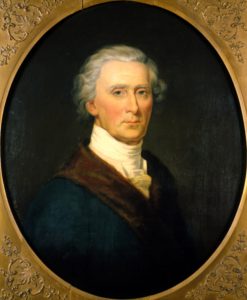
Charles Carroll was the last of the signers of the Declaration to pass away. He died on November 14, 1832. The nation he had helped found had celebrated its 56th birthday during the previous July, and Carroll himself had celebrated his 95th birthday in September. Carroll wrote these comments on August 2, 1826, exactly fifty years after affixing his name and “address” — Charles Carroll of Carrollton — to the Declaration of Independence.
Grateful to Almighty God for the blessings which, through Jesus Christ Our Lord, He had conferred on my beloved country in her emancipation and on myself in permitting me, under circumstances of mercy, to live to the age of 89 years, and to survive the fiftieth year of independence, adopted by Congress on the 4th of July 1776, which I originally subscribed on the 2d day of August of the same year and of which I am now the last surviving signer, I do hereby recommend to the present and future generations the principles of that important document as the best earthly inheritance their ancestors could bequeath to them, and pray that the civil and religious liberties they have secured to my country may be perpetuated to remotest posterity and extended to the whole family of man.
I do hereby recommend to the present and future generations the principles of that important document as the best earthly inheritance their ancestors could bequeath to them, and pray that the civil and religious liberties they have secured to my country may be perpetuated to remotest posterity and extended to the whole family of man.
—Charles Carroll—
Writing to James McHenry on November 4, 1800, Carroll penned these words:
Without morals a republic cannot subsist any length of time; they therefore who are decrying the Christian religion, whose morality is so sublime & pure, [and] which denounces against the wicked eternal misery, and [which] insured to the good eternal happiness, are undermining the solid foundation of morals, the best security for the duration of free governments.
They…who are decrying the Christian religion, whose morality is so sublime & pure, [and] which denounces against the wicked eternal misery, and [which] insured to the good eternal happiness, are undermining the solid foundation of morals, the best security for the duration of free governments.
—Charles Carroll—
Benjamin Franklin of Pennsylvania
Franklin said, “Man will ultimately be governed by God or by tyrants.”
John Hancock of Massachusetts
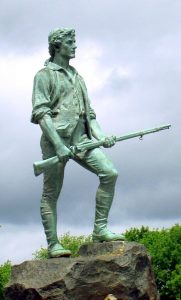
In October of 1774, the Provincial Congress, “reorganized their defenses with one-third of their regiments being ‘Minutemen,’ ready to fight at a minute’s notice.” Regarding this, a Resolution to Massachusetts Bay that apparently was written by John Hancock stated
Resistance to tyranny becomes the Christian and social duty of each individual. Continue steadfast and, with a proper sense of your dependence on God, nobly defend those rights which heaven gave, and no man ought to take from us.
Hancock also said,
Some boast of being friends to government; I am a friend to righteous government, to a government founded upon the principles of reason and justice; but I glory in publicly avowing my eternal enmity to tyranny.
Thomas Jefferson of Virginia
Thomas Jefferson, the principal writer of the Declaration of Independence and the man who would become America’s third president, said this in 1797: “Timid men prefer the calm of despotism to the tempestuous sea of liberty.”
Timid men prefer the calm of despotism to the tempestuous sea of liberty.
—Thomas Jefferson—
Richard Henry Lee of Virginia
The delegate who would offer the resolution to sever ties from Great Britain understood the relationship between morality and liberty and the importance of limiting government’s power. This last item is tightly connected, Lee believed, to the citizens’ right to bear arms. Lee made these statements.
-
-
- It is certainly true that a popular government cannot flourish without virtue in the people.
- The first maxim of a man who loves liberty should be never to grant to rulers an atom of power that is not most clearly and indispensably necessary for the safety and well-being of society (also go here).
- To preserve liberty, it is essential that the whole body of people always possess arms.
-
Thomas McKean of Delaware
Thomas McKean understood that freedom of the press in a free and ordered society meant publishers exercised freedom and responsibility. He said,
The true liberty of the press is amply secured by permitting every man to publish his opinion; but it is due to the peace and dignity of society, to inquire into the motives of such publications, and to distinguish between those which are meant for use and reformation, and with an eye solely to the public good, and those which are intended merely to delude and defame. To the latter description, it is impossible that any good government should afford protection and impunity.
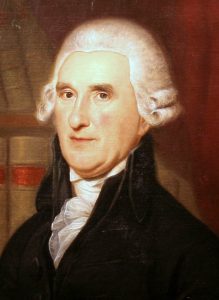
McKean would become Chief Justice of the Supreme Court of Pennsylvania. In the case titled Respublica v. John Roberts, John Roberts was found guilty of treason and sentenced to death. Before the execution took place, McKean told him,
You will probably have but a short time to live. Before you launch into eternity, it behooves you…to repent of your evil deeds; to be incessant in prayers to the great and merciful God to forgive your manifold transgressions and sins; to teach you to rely upon the merit and passion of a dear Redeemer, and thereby to avoid those regions of sorrow—those doleful shades where peace and rest can never dwell, where even hope cannot enter….May you, reflecting upon these things, and pursuing the will of the great Father of light and life, be received into [the] company and society of angels and archangels and the spirits of just men made perfect; and may you be qualified to enter into the joys of Heaven—joys unspeakable and full of glory!
Robert Treat Paine of Massachusetts
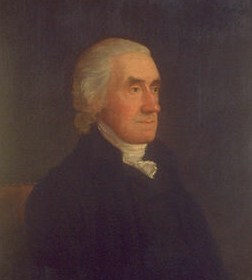
Robert Treat Paine was genuinely grateful to God for the liberty his country afforded him. Freedom of worship was especially important to him. He said,
I desire to bless and praise the name of God most high for appointing me my birth in a land of Gospel Light where the glorious tidings of a Saviour and of pardon and salvation through Him have been continually sounding in mine ears.
I desire to bless and praise the name of God most high for appointing me my birth in a land of Gospel Light where the glorious tidings of a Saviour and of pardon and salvation through Him have been continually sounding in mine ears.
—Robert Treat Paine—
Benjamin Rush of Pennsylvania
You’ll remember that at the beginning of this post we cited Dr. Benjamin Rush’s recollection of the signing of the Declaration of Independence. At the end of the Declaration, the signers affirm their “firm reliance on the protection of Divine Providence” and “mutually pledge to each other” their “Lives,…Fortunes, and…sacred Honor. Their faith in God strengthened them and enabled them to act courageously, decisively, and effectively to establish and preserve liberty in a new nation in North America. It was the birth of a revolutionary freedom!
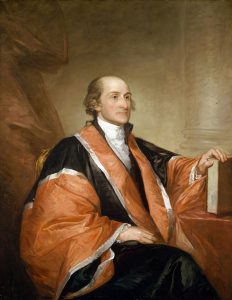
Sadly, slavery would continue for several more decades, but the nation eventually would fight a bloody war to eliminate it. At the time the Declaration was adopted, slavery was engrained in societies throughout the world. With the adoption of the Declaration and the ideals it upheld, however, the seeds of abolition were planted.
John Jay became the first Chief Justice of the Supreme Court. He observed that before the American Revolution and the establishment of a stable government for the independent states, very few serious attempts had been made to pry the institution of slavery from American life. While the process took longer than it should have, national recognition of the principles of equality and rights for “all men” was an important and decisive initial step in the right direction. Moreover, contrary to popular belief in today’s culture, the writing and ratification of the US Constitution in 1787 would prove to be another important step toward the abolition of slavery. This was the firm conviction of former slave and abolitionist Frederick Douglass, who called the US Constitution a “glorious liberty document.” But wait! We need to slow down. We’re getting ahead of ourselves.
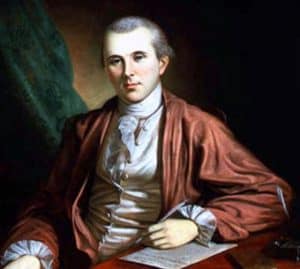
In the Declaration of Independence, America’s Founders upheld biblical principles. The Founding Fathers weren’t perfect, but they understood that liberty cannot be established or maintained without the nation’s recognizing and revering “the Laws of Nature and of Nature’s God.” Accordingly, Dr. Benjamin Rush said this about the Bible and education.
The Bible, when not read in schools, is seldom read in any subsequent period of life… [T]he Bible… should be read in our schools in preference to all other books because it contains the greatest portion of that kind of knowledge which is calculated to produce private and public happiness.
Roger Sherman of Connecticut
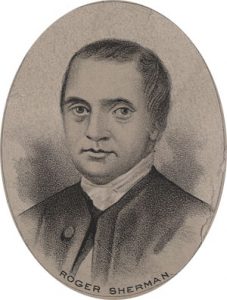 Along with Thomas Jefferson, Benjamin Franklin, John Adams, and Robert Livingston, Sherman was a member of the special “Committee of Five” men assigned to prepare a draft of the Declaration of Independence. Sherman later became a member of the US House of Representatives and a US Senator. Like many other Founders, he was a Christian who was unashamed of his faith:
Along with Thomas Jefferson, Benjamin Franklin, John Adams, and Robert Livingston, Sherman was a member of the special “Committee of Five” men assigned to prepare a draft of the Declaration of Independence. Sherman later became a member of the US House of Representatives and a US Senator. Like many other Founders, he was a Christian who was unashamed of his faith:
I believe that there is one only living and true God, existing in three persons, the Father, the Son, and the Holy Ghost…that the Scriptures of the Old and New Testaments are a revelation from God.…that God did send His own Son to become man, die in the room and stead of sinners, and thus to lay a foundation for the offer of pardon and salvation to all mankind so as all may be saved who are willing to accept the Gospel offer.
I conclude this post with a warning from Roger Sherman. All of us in 21st-century America will do well to hear and heed him. Sherman warned of complacency regarding the liberties that he and the other Founders had sacrificed so much to secure:
Sad will be the day when the American people forget their traditions and their history, and so longer remember that the country they love, the institutions they cherish, and the freedom they hope to preserve, were born from the throes of armed resistance to tyranny, and nursed in the rugged arms of fearless men.
Sad will be the day when the American people forget their traditions and their history, and so longer remember that the country they love, the institutions they cherish, and the freedom they hope to preserve, were born from the throes of armed resistance to tyranny, and nursed in the rugged arms of fearless men.
—Roger Sherman—
Courageous Examples
Today, we need men and women with the courage we see in America’s Founding Fathers as they acted to establish and preserve liberty. Let us welcome their wisdom. Taking our cue from them, let us uphold “the Laws of Nature and of Nature’s God,” and, “with a firm reliance on the protection of Divine Providence,” let us “mutually pledge to each other our Lives, our Fortunes, and our sacred Honor,” for the cause of authentic liberty.
The need is great, but so are our opportunities and the benefits that can be realized.
May God enable us to reestablish revolutionary freedom!
Copyright © 2021 by B. Nathaniel Sullivan. All rights reserved.
top image credit: Photo by Dan Mall on Unsplash
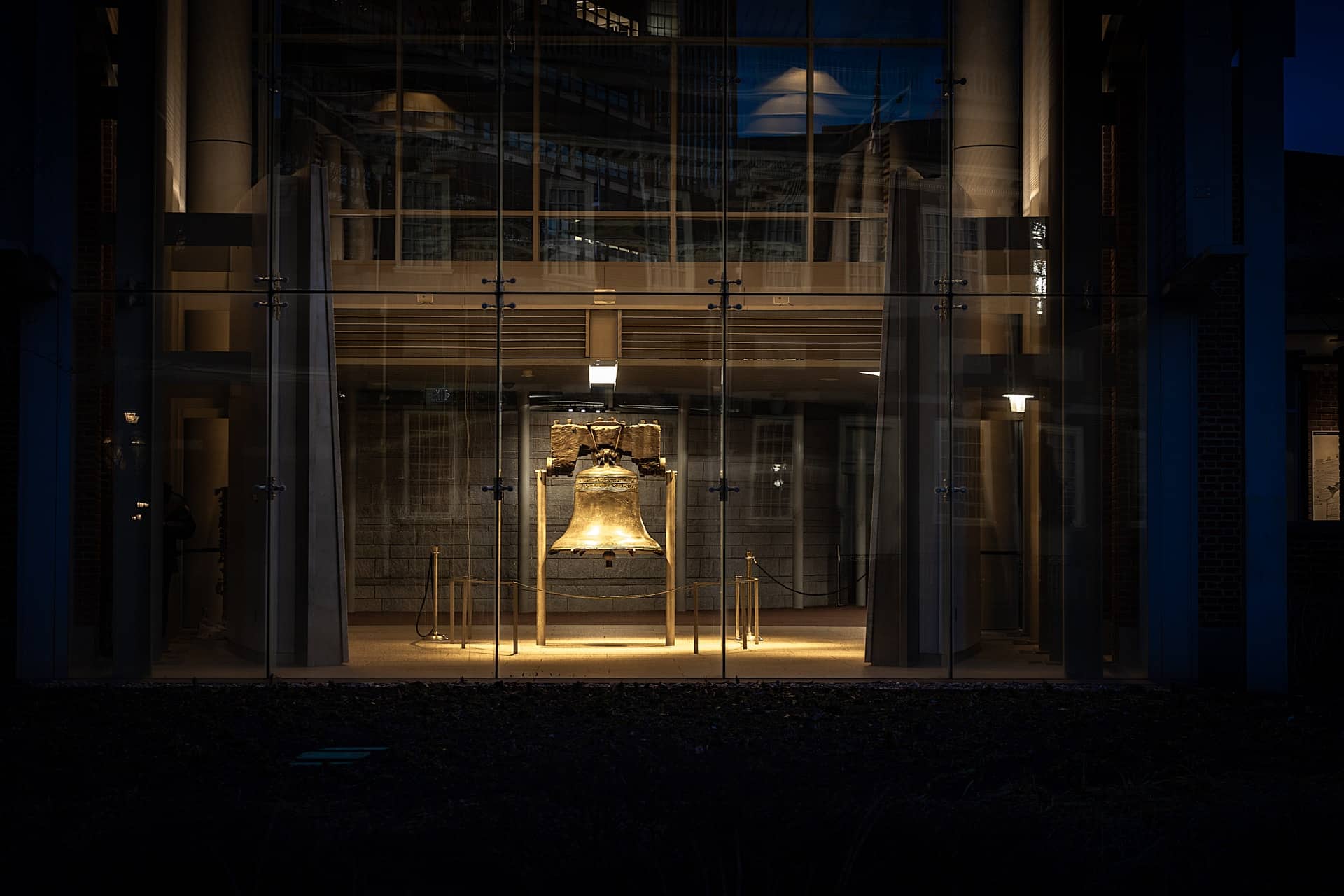

Be First to Comment